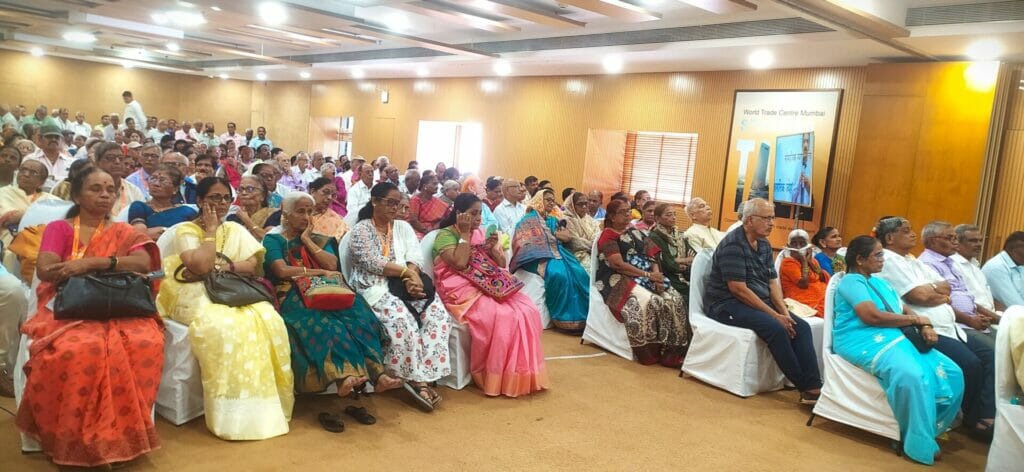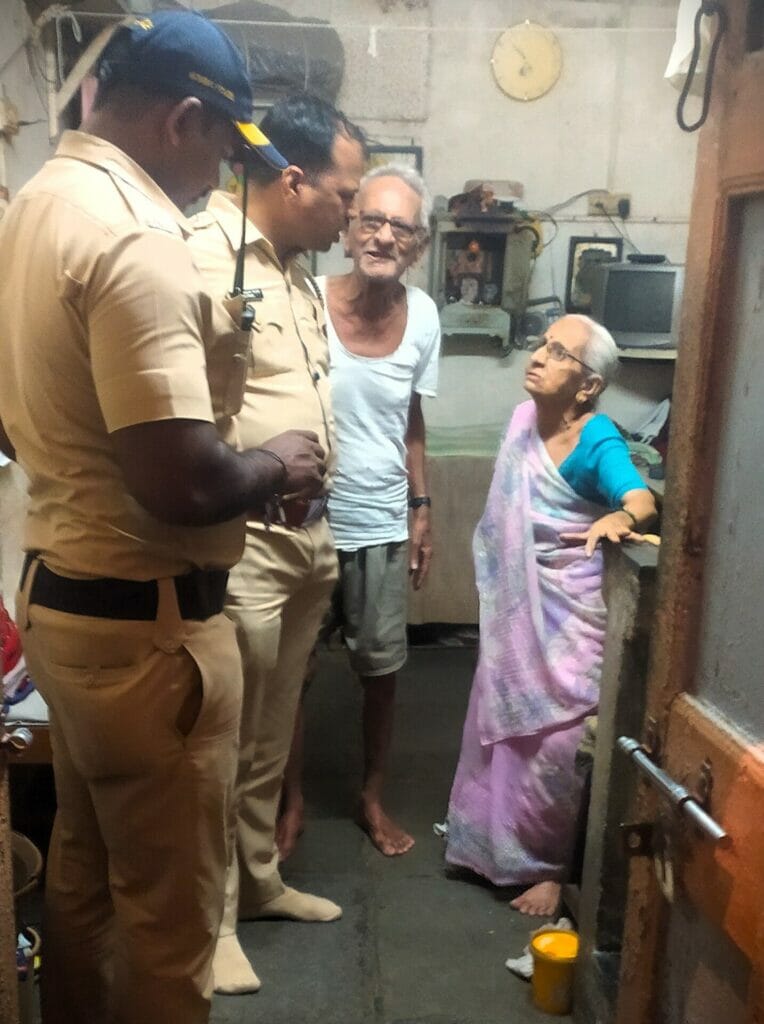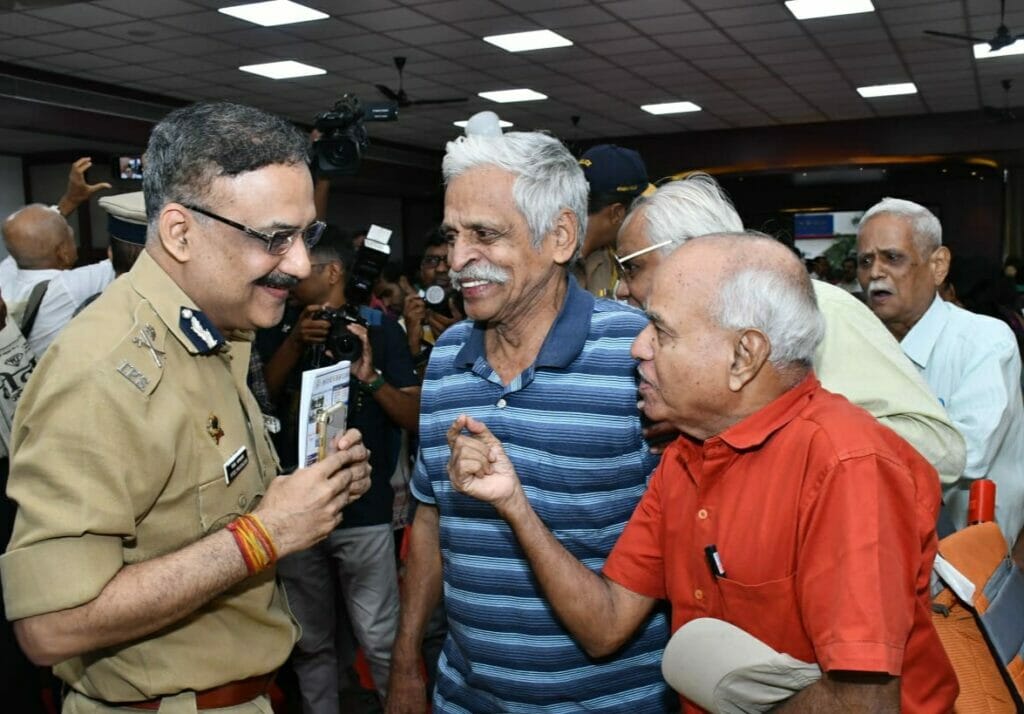The elderly population in India is rapidly rising with those above 60 years of age set to constitute 15% of the population by 2036 (22.7 crore), according to the India Ageing Report-2023 released by the United Nations Population Fund (UNFPA).
From constituting about 10.5% (14.9 crore) of the population in 2022, the population of senior citizens is likely to increase to 20% in 2050 (34.7 crore), thus throwing up new challenges related to their safety, well-being and health.
The report also stressed on the need to focus policies and programmes on the needs of older women since they were estimated to outlive their male counterparts. Policies and programmes for the predominantly widowed and highly dependent very old women will be the need of the hour, the report said.
In the wake of this background, Citizen Matters is doing a multi-part series, looking at the safety of the elderly, supporting infrastructure for the elderly, legal and community safeguards available for the rights of the elderly. We will also try to identify the gaps that need to be plugged to provide safety, security, care to our elderly.
In the first part, we identify the safety risks and measures taken by the Mumbai Police.
How safe are our seniors
Mumbai has recorded the second highest number of crimes against senior citizens, as per the latest data by the National Crime Records Bureau (NCRB). With 987 cases registered in 2021, it stood second only to New Delhi with 1166 cases of crimes against senior citizens.
Not so long ago, in 2019 (1231 cases) and 2018 (1043 cases), Mumbai had been the most unsafe city in the country for elders.
Maharashtra continues to have the highest number of cases of attack against senior citizens with 6190 cases registered in 2021 followed by Madhya Pradesh (5,273 cases), Telangana (1952 cases) and Tamil Nadu (1841 cases).
The cases include those of theft, assault, domestic abuse and even murder.
Recently on May 9, 2023, 85-year-old Murlidhar Naik was found killed by his own caretaker. Earlier, 69-year-old Maria D’Costa was killed by her servants for her valuables.
Elders in financial capital are at a much greater risk than ever before due to factors like nuclear families, migration of children and uncaring families.
”One cannot escape the fact that senior citizens are at a much greater risk today than ever before. After all, a worrying number of the elderly live on their own. Abandoned by their uncaring families, they are left completely helpless in crisis and extremely vulnerable to criminal elements, health problems and depression,” says the Mumbai police website.
Mumbai police has responded by paying regular visits to the homes of senior citizens, especially those living alone. While the scheme of paying courtesy visits to elders, to make them feel secure, had been around for more than a decade, the Mumbai police has started reviving it again.

Friendly visit, close watch
As part of their safety net for senior citizens, the Mumbai police visits senior citizens, both staying alone or with their families. Around 3600 elders are currently registered with the Mumbai police database of senior citizens and are being monitored by the Mumbai police.
”The elders have been identified in three different categories – those staying alone, with their spouses and those with their families. While we monitor those staying alone almost on a daily basis, those staying with spouses are visited every second day, while those staying with families are visited once in a while,” explains Subhash Borate, senior police inspector of Bhoiwada police station.
There is a proper mechanism in place to ensure that the system works. “The visiting policemen is expected to sign the register kept at the senior’s residence during every visit. A picture is also taken with the senior citizen as proof of the visit and he is asked to upload it on a WhatsApp group meant for supervising this effort,” explains Sr PI Subhash.
Read more: International Day of the Older Persons: Navigating life as elderly in Mumbai
How do elders respond to such visits?
A patrol police official, who visits elders regularly, says often they are not enthusiastic about it. “One elder doesn’t like being clicked, another has barred me from coming as she views police visits with distrust. For some others, we are their only source of human contact and they want to unload all their cares and concerns on us,” says the official.
“My neighbours keep wondering why the police visits me and if there was some problem,” an elderly woman explained her reluctance about police visits.
“We never say no for any work even if the task is unrelated to our department. Queries about pensions or government formalities are coordinated for them. At times, we even get cakes to celebrate their birthdays to make them feel special,” says Prashant Kadam, deputy commissioner of police (Zone-4). Regular police visits to building societies also helps create a sense of security in the neighbourhood and discourages criminal elements, he states.
For example, Philomena D’Mello, 68, who has been staying alone since her husband’s death in 2011, recalls how an impromptu oral complaint to a visiting policeman in her building completely stopped the nuisance of loud midnight partying from her tenant neighbour. “I wouldn’t have gone to the police station to complain, but one shouting from the police was enough to resolve my problems,” says Philomena. “I am not aware of this scheme of policemen visiting people but I wouldn’t want it for myself because I feel quite safe in the power of prayer,” she says.

Another 72-year-old lady, who has been staying alone for the past 15 years, said, ”I do notice the police personnel visiting my neighbour upstairs regularly but I wouldn’t want that for myself. I don’t like any visitors at home and wouldn’t like to have the police ring my doorbell anytime. I feel safe in my anonymity rather than have that niggling fear about what if the police themselves tip the accused about me living alone.”
Distrust about the police is a real issue and no one likes to deal with the police, says an activist. Besides, with most police stations being short-staffed, implementation of this scheme is dependent on the interest taken by senior cops.
Safety protocols
If some senior citizens are uncomfortable with the police visits, the cops maintain a tab on them via their housing society member or through other mechanisms. “Many elders have their own issues and we understand that,” says DCP Prashant. Police have also been directed to connect with the community through organisations working with them or by visiting them at their community centers.

Policemen are also expected to check if necessary safety mechanisms like peep holes or safety doors are in place and also if the homes have proper locks. Home visits are scheduled only during mornings and evenings to avoid inconveniencing elders.
Recently in July, the Mumbai police organised a get-together of elders from across the city to interact with the senior officials of Mumbai police. Police stations have also been directed to hold special meetings with elders on Saturdays.
Helplines for the safety of the elderly
Senior citizens should be encouraged to reach out for help – be it medical or otherwise. When they face situations that involve physical violence or pose a risk to their lives, they should contact any of the following helplines.
National helpline – 14567
Mumbai police helpline – 1090 (Senior Citizens may directly call 1090 to register themselves)
While the national helpline is meant for information on facilities available for the aged, guidance on issues like legal or pension-related, or counseling and emotional support, the Mumbai police helpline is to seek redressal for distress or abuse.
Medical emergencies are also handled in co-ordination with state health helpline 108.
Elders can also apply for registration on https://elderline.dosje.gov.in, mumbaipolice.gov.in or through www.hamarisuraksha.com